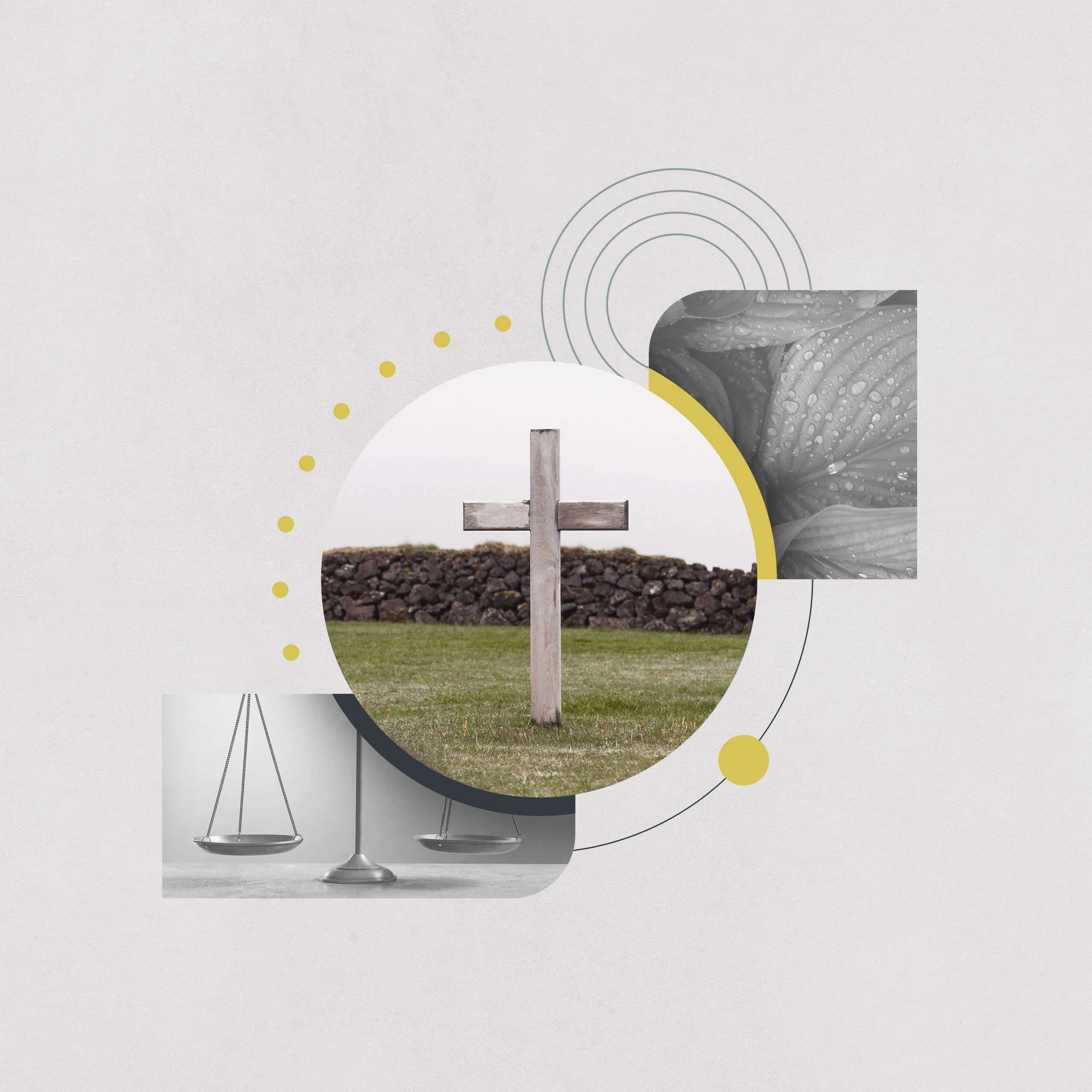Sin and Salvation

“Why do we need to talk about sin? We ought to just talk about the love of God.” This comment was not made by a dedicated liberal. Rather, it was made by a woman who is a member of an evangelical church and has enrolled her children in a Reformed Christian School. She does not seem to have grasped much of the character of Calvinism.
Regrettably this comment is not just a strange aberration. In a recently published book, sociologist Alan Wolfe argues that this attitude is wide-spread throughout American religious groups and denominations, including evangelicals. In The Transformation of American Religion Wolfe states, “Talk of hell, damnation and even sin has been replaced by a nonjudgmental language of understanding and empathy.” Most American churches and synagogues today are characterized by attitudes and practices which are “joyful, emotional, personal and empathetic on the one hand, impatient with liturgy and theologically broad to the point of theological incoherence” on the other.
Wolfe is fundamentally sympathetic to this new development. He believes that this common attitude serves the interests of a diverse society that values toleration, cooperation and civility. Religions that are too exclusive in their claims undermine social unity and must be seen as somewhat dangerous and bigoted. For Wolfe, true Calvinism must be a problem for a tolerant society because of its stress on the seriousness of sin and on Christ as the only way to God.
The concern of Wolfe and many others is not new. Such criticism has been directed against Christianity since its beginning. In the Roman empire, Christians were called traitors and atheists because they would not worship the Roman gods. Christians were bigots and dangerous to the unity of the empire because of the exclusive claims they made for their faith.
We Must Talk about Sin
Faithful Christians have always rejected the call to conform their faith to the desires of those who want to say that all religions are equally true and useful. As Christians we insist that we must talk about sin if we are to be truthful about the human condition. If we do not understand our sin, we will not understand the kind of savior we need. Our sin creates two problems for us as we stand before God. First, we need to have the guilt of our sin taken away. Adam’s original sin and our actual sin have made us guilty before God and worthy only of condemnation. We need to be forgiven and so we need a savior who can ensure our forgiveness. Second, as sinners we need to have a positive righteousness with which we can stand before God. Adam was not created as a morally neutral being, but was created righteous and holy. So as sinners who want to become new creatures, we need righteousness and a savior who can make us righteous.
The Reformation was a recovery of the biblical doctrine of sin and salvation. Sin was again seen as a problem that could not be solved by human action. Salvation was again seen as entirely the work of God. God in Christ pays the penalty of our sin. And God through Christ justifies and sanctifies the sinner. In justification the sinner becomes perfectly holy in the judgment of God. In sanctification the sinner by grace becomes progressively more holy in his own life.
Our salvation is the work of Christ for us.
The Reformation doctrine of justification in particular is under serious attack in our time and we need to be renewed in an understanding of that doctrine and in our commitment to it. One way to do that is to meditate on the teaching of the great Reformation catechisms. For example, the great Reformation doctrine of justification was beautifully captured in a question of the Heidelberg Catechism. This catechism, published in 1563 in the Palatinate in Germany, was designed to clarify the doctrinal commitments of the church there and to instruct the people of God in the true faith. This catechism proved to be very effective because of the personal way in which it teaches biblical truth. It came to be used widely in German, Dutch, and Hungarian Reformed churches and was later brought to America. The catechism’s teaching on justification is summarized in question 60. It asks: “How are you righteous before God?” The answer, although long, is most helpful.
Only by true faith in Jesus Christ; that is, although my conscience accuses me that I have grievously sinned against all the commandments of God, and have never kept any of them, and that I am still prone always to all evil, yet God, without any merit of mine, of mere grace, grants and imputes to me the perfect satisfaction, righteousness, and holiness of Christ, as if I had never committed nor had any sin, and had myself accomplished all the obedience which Christ has fulfilled for me, if only I accept such benefit with a believing heart.
To appreciate this answer we should look at the four elements of its teaching: 1) the problem of sin, 2) the work of Christ, 3) God’s imputation of that work to us, and 4) the role of faith.
The Problem of Sin
First, the answer to question 60 makes clear how great is the problem of sin for us as fallen creatures. Because of Adam’s fall and my own corruption, I have broken all the commandments of God and never kept any of them. I have no goodness or accomplishment to offer God in order to earn His favor. Even as a Christian I am still inclined to all evil. Left to myself I would still have no strength or righteousness. Neither as a non-Christian nor as a Christian do I merit any reward or blessing from God. I recognize my sad state as my conscience accuses me, but even my sorrow for sin cannot rescue me or gain God’s favor. I grieve because by my sin I have grieved my heavenly Father.
The Work of Christ
Second, I recognize that Jesus has done for me what I could never have done for myself. Jesus was perfectly obedient to the Law of God. In this way He is the Second Adam. As Adam was created in the image of God to be the obedient and faithful image bearer of God, so the eternal Son of God came in the flesh and was born under the Law to do what the first Adam failed to do. Jesus kept the Law completely so that He was fully holy in Himself and perfectly righteous in the light of God’s justice. Jesus also satisfied God’s justice for sinners who could not help themselves. Although Jesus was perfectly holy and not personally liable for the curse visited on sinners, He took the place of sinners on the cross and bore the penalty and curse for all those in Him.
So there are two aspects to what Jesus did, often called His active obedience and His passive obedience. Actively He fulfilled the Law and passively He suffered judgment and death for His own. Jesus did it all. Nothing remains to be done to merit eternal life. The work of Christ is complete and perfect for sinners.
God’s Imputation of That Work to Us
Third, the work of Christ for justification becomes effective for sinners by the gift of God. God gives that work of Christ in a very particular way, the way of imputation. Imputation is not a word that we use very often. It is a word, however, that Paul used to describe the gift of God (Rom 4:3). Imputation means that God reckons or credits Christ’s work to us. The Heidelberg Catechism expresses the character of imputation clearly when it says that when Christ’s work is imputed to me, it is “as if I had never committed nor had any sin, and had myself accomplished all the obedience which Christ has fulfilled for me.” Because Christ’s obedience—both active and passive—is credited to me by God, God sees me in light of the obedience of Jesus.
The Role of Faith
Fourth, the instrument by which I receive the imputation of Christ’s work is faith alone. Faith is the way in which I can look away from myself—both from my sin and from my progress in sanctification—and look to Christ as my only hope. Faith is trusting Jesus and not trusting myself. Again the Heidelberg Catechism, question 21, presents a wonderful definition of faith: “What is true faith?” Answer: “It is not only a certain knowledge whereby I hold for truth all that God has revealed to us in his Word, but also a hearty trust which the Holy Ghost works in me by the Gospel, that not only to others, but to me also, forgiveness of sins, everlasting righteousness and salvation, are freely given by God, merely of grace, only for the sake of Christ’s merits.”
This answer shows us how faith looks to Christ and His work alone and trusts it completely. It also shows the blessed confidence that true faith gives us in the salvation that Christ has won for us. The Reformation doctrine of justification helps us to see that our salvation is the work of Christ for us. It also delivers us from a life of doubt and fear that causes us to wonder how God could possibly love sinners like us. It shows us that we have peace with God objectively because Christ has satisfied the demands of God for us, and it shows us subjectively because we can know confidently that by faith in Christ we are right with God.
Many in our society and even in churches may see this doctrine as dangerous—divisive or undermining holiness. But those who believe the Bible see that it is the truth of God and an inexpressible blessing in the life of God’s people.



